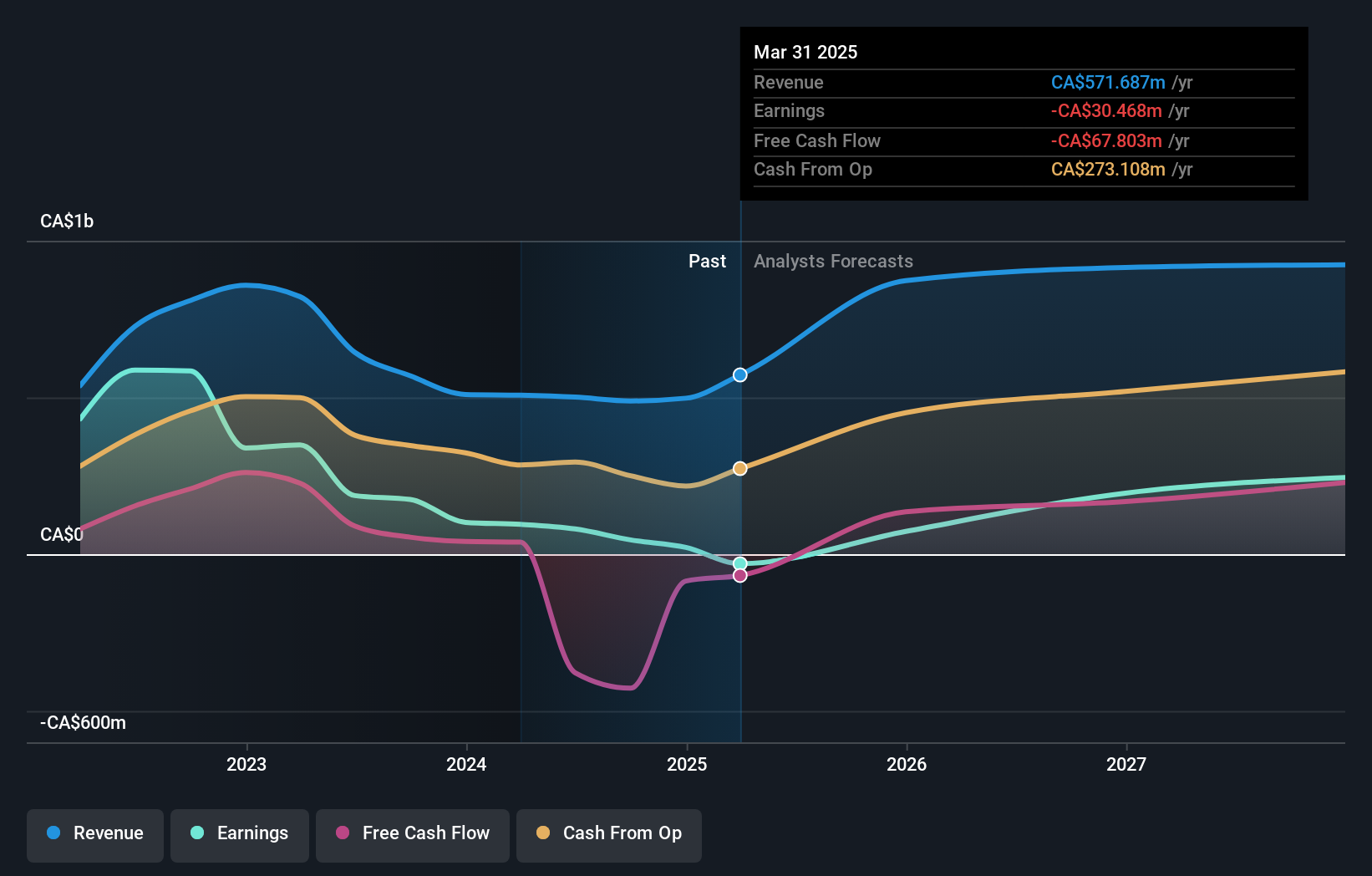Retail investors who hold 56% of Advantage Energy Ltd. (TSE:AAV) gained 5.4%, institutions profited as well
Key Insights
- Advantage Energy's significant retail investors ownership suggests that the key decisions are influenced by shareholders from the larger public
- A total of 25 investors have a majority stake in the company with 42% ownership
- Insiders have bought recently
Every investor in Advantage Energy Ltd. (TSE:AAV) should be aware of the most powerful shareholder groups. We can see that retail investors own the lion's share in the company with 56% ownership. That is, the group stands to benefit the most if the stock rises (or lose the most if there is a downturn).
Following a 5.4% increase in the stock price last week, retail investors profited the most, but institutions who own 41% stock also stood to gain from the increase.
Let's delve deeper into each type of owner of Advantage Energy, beginning with the chart below.
See our latest analysis for Advantage Energy

What Does The Institutional Ownership Tell Us About Advantage Energy?
Institutional investors commonly compare their own returns to the returns of a commonly followed index. So they generally do consider buying larger companies that are included in the relevant benchmark index.
Advantage Energy already has institutions on the share registry. Indeed, they own a respectable stake in the company. This can indicate that the company has a certain degree of credibility in the investment community. However, it is best to be wary of relying on the supposed validation that comes with institutional investors. They too, get it wrong sometimes. If multiple institutions change their view on a stock at the same time, you could see the share price drop fast. It's therefore worth looking at Advantage Energy's earnings history below. Of course, the future is what really matters.

We note that hedge funds don't have a meaningful investment in Advantage Energy. Looking at our data, we can see that the largest shareholder is EdgePoint Investment Group Inc. with 11% of shares outstanding. Mackenzie Financial Corporation is the second largest shareholder owning 6.9% of common stock, and Dimensional Fund Advisors LP holds about 5.2% of the company stock. In addition, we found that Michael Belenkie, the CEO has 0.7% of the shares allocated to their name.
Our studies suggest that the top 25 shareholders collectively control less than half of the company's shares, meaning that the company's shares are widely disseminated and there is no dominant shareholder.
While studying institutional ownership for a company can add value to your research, it is also a good practice to research analyst recommendations to get a deeper understand of a stock's expected performance. There are plenty of analysts covering the stock, so it might be worth seeing what they are forecasting, too.
Insider Ownership Of Advantage Energy
The definition of an insider can differ slightly between different countries, but members of the board of directors always count. The company management answer to the board and the latter should represent the interests of shareholders. Notably, sometimes top-level managers are on the board themselves.
Most consider insider ownership a positive because it can indicate the board is well aligned with other shareholders. However, on some occasions too much power is concentrated within this group.
We can report that insiders do own shares in Advantage Energy Ltd.. This is a big company, so it is good to see this level of alignment. Insiders own CA$64m worth of shares (at current prices). It is good to see this level of investment by insiders. You can check here to see if those insiders have been buying recently.
General Public Ownership
The general public, mostly comprising of individual investors, collectively holds 56% of Advantage Energy shares. This level of ownership gives investors from the wider public some power to sway key policy decisions such as board composition, executive compensation, and the dividend payout ratio.
Next Steps:
While it is well worth considering the different groups that own a company, there are other factors that are even more important. Consider risks, for instance. Every company has them, and we've spotted 1 warning sign for Advantage Energy you should know about.
Ultimately the future is most important. You can access this free report on analyst forecasts for the company.
NB: Figures in this article are calculated using data from the last twelve months, which refer to the 12-month period ending on the last date of the month the financial statement is dated. This may not be consistent with full year annual report figures.
Have feedback on this article? Concerned about the content? Get in touch with us directly. Alternatively, email editorial-team (at) simplywallst.com.
This article by Simply Wall St is general in nature. We provide commentary based on historical data and analyst forecasts only using an unbiased methodology and our articles are not intended to be financial advice. It does not constitute a recommendation to buy or sell any stock, and does not take account of your objectives, or your financial situation. We aim to bring you long-term focused analysis driven by fundamental data. Note that our analysis may not factor in the latest price-sensitive company announcements or qualitative material. Simply Wall St has no position in any stocks mentioned.
 Wall Street Journal
Wall Street Journal